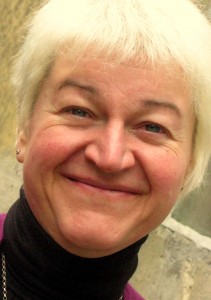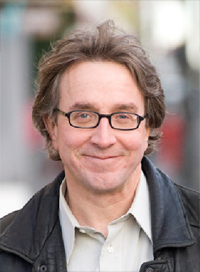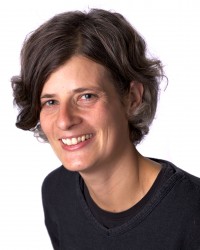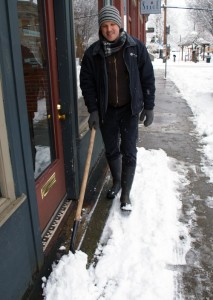January 17th, 2012
Lesson 1: Urban Sustainability: How to create a socially, environmentally and economically sustainable neighbourhood.
The presentation will cover some of the critical sustainability issues facing urban municipalities in Canada, including a massive infrastructure deficit, destabilizing climate change, and an ageing population, which will require communities to ‘live within their means’ for the first time in 2 centuries. Come join in the discussion of community sustainability.
Speaker – Kim Fowler, Sustainability Planning and Integration Specialist, www.SustainabilityMakesCents.com
Kim is a municipal sustainability expert with a proven record of successfully implementing sustainability in several municipalities. Her design of the Sustainability Initiative for the City of Port Coquitlam integrated 12 land development activities from the corporate strategic level through the budget to individual projects. The Initiative won a 2006 Smart Growth BC award. She project managed the development concept and land sale of the Victoria Dockside Green lands, which were awarded the highest LEEDTM Platinum point total in the world for the first two development phases. The Dockside project has won over 20 sustainability awards.
Article/Book Recommendations:
- City of Victoria budget
- City of Victoria, Financial Sustainability Policy
- Open Victoria, News, Victoria’s Budget Crisis
- ICLEI White Paper, Financing the Resilient City: A Demand Driven Approach to Development, Disaster Risk Reduction and Climate Adaptation
- Paul Hawken, You Are Brilliant and the Earth is Hiring
- United Nations, Our Common Future, From One Earth to One World
- National Round Table on Environment and Economy, Paying the Price: The Economic Impacts of Climate Change for Canada
- Pacific Institute for Climate Solutions, Climate Change and Food Security in British Columbia
- Professor Ann Dale, Royal Roads University, A Policy Agenda for Canadian Municipalities
- Federation of Canadian Municipalities, Ahead of the Wave: A Guide to Sustainable Asset Management for Canadian Municipalities
- Asset Management BC – various best management practices for infrastructure, including model policy, case studies, roadmap guide
- Todd Litman, University of Victoria, Yes, We Can Have a Healthy Environment and Economic Development: Reconciling Conflicting Planning Objectives
January 24th, 2012
Lesson 2: Neighbourhood Power: How to ensure neighbourhood control or ownership of neighbourhood institutions and assets.
The presentation will discuss what is meant by “control or ownership,” and the importance of this to the evolution of Fernwood in the past decade. It will explore the current structure of control and ownership, and what possibilities exist today.
Speaker – Lee Herrin, Executive Director, Fernwood NRG, www.fernwoodnrg.ca
Lee has been involved in the evolution of Fernwood since 1998, and has lived in the neighbourhood off and on (but mostly on) since 1991. He joined the Board of Directors of the then Fernwood Community Centre Society (now Fernwood NRG) in 1998, became Chair of the Board in 1999 and held that position until 2006. He then continued as Treasurer, took a year off and rejoined the Board in 2008 for a year before stepping down to become the Executive Director and senior staff member. During this time, the Society’s assets have grown from $153,827 in 1998 to $3.2 million today, and member’s equity has expanded from $78,245 to nearly $1 million today. Lee has a Master’s Degree in Environmental Studies from York University and previously worked 11 years at BC Stats. Notwithstanding any of the foregoing, he can always be found shovelling sidewalks in the neighbourhood during a snowstorm.
Article/Book Recommendations:
- Alexander, Christopher. A Pattern Language: Towns, Buildings & Construction, Oxford University Press, 1977.
- Cunningham, James V. and Milton Kotler. Building Neighborhood Organizations, University of Notre Dame Press, 1983.
- Kotler, Milton. Neighborhood Government, Lexington Books, 2005.
- Morris, David and Karl Hess. Neighborhood Power: The New Localism, Beacon Press, 1975.
- Schumacher, E.F. Small is Beautiful: Economics as if People Mattered, Harper Perennial, 2010
January 31st, 2012
Lesson 3: Financial Self-reliance: How to use resources prudently and become financially self-reliant.
Speaker – Nicole Foss, Energy Consultant & Financial Analyst, theautomaticearth.blogspot.com
My name is Nicole Foss and I am senior editor of The Automatic Earth. Our website has been chronicling the credit crunch for the past four years, placing finance in context with peak oil, geopolitics, environmental issues and many other factors. My formal back ground is in science and law. I have been a research fellow at Oxford University, specializing in energy studies, and until recently ran the Agri-Energy Producers’ Association of Ontario.
I will be presenting my view of the big picture, focusing on finance as the time-frame is shortest. I will discuss aspects of the Canadian situation in addition to the global picture. We are looking at the development of a major economic depression over the next few years, with a crash of the money supply and therefore purchasing power. The burden of debt has become too large to service and that debt is about to deflate, with enormous consequences. We need to know how to preserve our freedom of action during this period.
Blog Post Recommendations:
- The Big Picture According to TAE, theautomaticearth.blogspot.com
- The unbearable mightiness of deflation, theautomaticearth.blogspot.com
- Inflation, the least of your worries, theautomaticearth.blogspot.com
- 40 ways to lose your future, theautomaticearth.blogspot.com
- How to build a lifeboat, theautomaticearth.blogspot.com
- From the Top of the Great Pyramid, theautomaticearth.blogspot.com
- “Inflation” deflated, theautomaticearth.blogspot.com
February 21st, 2012
Lesson 5/6: Come Together and Make it Happen!: How to engage the dreams, resources, and talents of our neighbours and foster new links between them and how to take action in response to neighbourhood issues, ideas, and initiatives.
Speaker – Roberta Martell, former Executive Director of Fernwood NRG and current Executive Director of the Nanaimo Family Life Association of BC, a non-profit dedicated to supporting families and children in Nanaimo.
Roberta has had a diverse career almost exclusively in the non-profit sector, working with North Shore Neighbourhood House, the David Suzuki Foundation and Fernwood NRG. Roberta was Executive Director of Fernwood NRG for six years (2004-2009) through a period of tremendous growth and development in Fernwood, including the purchase and revitalization of the Cornerstone building and the development of the Park Place Apartments on Yukon Street. She also has a Master’s Degree from Royal Roads in Leadership. Her interest is in community, complexity and change; with a unique focus on how the transferable language from natural systems can inform our move towards sustainability.
Recommended Article:
Meadows, Donella. Leverage Points: Places to Intervene in a System, The Sustainability Institute, 1999.
February 28th, 2012
Lesson 7: Neighbourhood Democracy: How to organize a community, dig for information, and influence government, with openness, inclusivity, and kindness … whenever possible.
Speaker – Ross Crockford, Co-founder of johnsonstreetbridge.org
Ross is a journalist and teacher. After practicing law in Vancouver, he served as editor of Monday Magazine from 1998 to 2001. Ross has received awards for business writing and investigative reporting; he’s also the author of Victoria: The Unknown City, an alternative history of the capital region. In 2009, he co-founded johnsonstreetbridge.org, the citizens’ group that gathered 9,872 signatures to force a referendum on the fate of Victoria’s Blue Bridge.
Article/Link Recommendations:
- Bish, Robert L. and Eric G. Clemens. Local Government in BC, Union of British Columbia Municipalities, 2008.
- BC Community Charter, Queen’s Press, 2003.
- City of Victoria Council Bylaw
- Canadian Newsstand
- Office of the Information and Privacy Commissioner
March 6th, 2012
Lesson 8: Building Capacity: How to develop the skills, capacity, self-worth, and excellence of our neighbours and ourselves.
Speaker – Lisa Helps, City of Victoria Councillor, former Fernwood NRG Board Chair, & Executive Director of Victoria Community Micro Lending Society
Lisa spends much of her time working in the community on place-based solutions to global and national challenges, and to increasing citizen engagement. She is a founder and currently the Executive Director of the Victoria Community Micro Lending Society which helps to build a vibrant local economy, foster sustainable business, reduce local poverty, and empower people. She also facilitates strategic planning and visioning sessions for organizations and small groups. Lisa was on the the Board of Directors of Victoria’s Fernwood Neighbourhood Resource Group (Fernwood NRG) when the Society purchased and restored the Cornerstone building, built affordable housing units, and opened the Cornerstone Café as an enterprising non-profit venture. She is thrilled to be working for Community Micro Lending and is excited about the prospect of “changing everything.” Finally, Lisa was elected to Victoria City Council in November and is happy to be helping build a city where citizens lead.
March 13th, 2012
Lesson 10: Vibrant Space: How to create neighbourhood places that are vibrant, beautiful, healthy and alive.
Drawing on the work of the architect Christopher Alexander, Lee will talk about how small acts of building at a neighbourhood level work together to create places that are vibrant, beautiful, healthy and alive. He will cite specific examples of “what works” in the neighbourhood today, and then talk about how we can all work together to create a stronger whole.
Speaker – Lee Herrin, Executive Director, Fernwood NRG, www.fernwoodnrg.ca
Lee has been involved in the evolution of Fernwood since 1998, and has lived in the neighbourhood off and on (but mostly on) since 1991. He joined the Board of Directors of the then Fernwood Community Centre Society (now Fernwood NRG) in 1998, became Chair of the Board in 1999 and held that position until 2006. He then continued as Treasurer, took a year off and rejoined the Board in 2008 for a year before stepping down to become the Executive Director and senior staff member. During this time, the Society’s assets have grown from $153,827 in 1998 to $3.2 million today, and member’s equity has expanded from $78,245 to nearly $1 million today. Lee has a Master’s Degree in Environmental Studies from York University and previously worked 11 years at BC Stats. Notwithstanding any of the foregoing, he can always be found shoveling sidewalks in the neighbourhood during a snowstorm.
Book Recommendation:
- Alexander, Christopher. A Pattern Language: Towns, Buildings & Construction, Oxford University Press, 1977.
- Alexander, Christopher. The Timeless Way of Building, Oxford University Press, 1979.
- Alexander, Christopher. A New Theory of Urban Design, Oxford University Press, 1987.
March 27th, 2012
Lesson 4: Economic Power to the People: How to create and support neighbourhood employment.
This talk will explore the large gap between our collective, innovative community visions for environmentally sustainable urban development and our comparable lack of vision for similar kinds of economic changes. It will trace the history of the most recent local Official Community Plan and Economic Strategy processes, and look at some the creative, inspiring alternatives that are emerging here out of the worldwide Community Economic Development movement.
Speaker – Rob Wipond, Focus magazine
Rob Wipond is a community issues journalist for Focus magazine, and has frequently done research into and written about local and regional economic and business development. He also co-wrote the Consensus Statement on Victoria’s Economic Development Strategy, co-founded the Metro Victoria Community Economy Group, sits on the steering committee for the Community Social Planning Council’s Community Investment Fund initiative, and organizes actions with the Transition Victoria Economy Working Group.
Link Recommendations:
- Metro Victoria Community Economy Group Initiative, communityeconomy.ca
- Community Social Planning Council, Community Investment Fund Project







